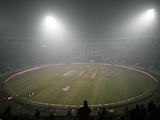The European Space Agency unveiled the first images captured by its Euclid space telescope, aiming to unravel cosmic mysteries. The five stunning images showcase celestial wonders, including the Perseus Galaxy Cluster, the IC 342 spiral galaxy, the globular cluster NGC 6397, the irregular galaxy NGC 6822, and the Horseshoe Nebula.
According to the space agency, never before has a telescope been able to create such razor-sharp astronomical images across such a large patch of the sky and look so far into the distant universe. These five images illustrate Euclid's full potential; they show that the telescope is ready to create the most extensive 3D map of the universe yet and to uncover some of its hidden secrets.
Watch the video here:
“Dark matter pulls galaxies together and causes them to spin more rapidly than visible matter alone can account for; dark energy is driving the accelerated expansion of the universe. Euclid will for the first time allow cosmologists to study these competing dark mysteries together,” explains ESA Director of Science, Professor Carole Mundell. “Euclid will make a leap in our understanding of the cosmos as a whole, and these exquisite Euclid images show that the mission is ready to help answer one of the greatest mysteries of modern physics.”
“We have never seen astronomical images like this before, containing so much detail. They are even more beautiful and sharp than we could have hoped for, showing us many previously unseen features in well-known areas of the nearby universe. Now we are ready to observe billions of galaxies and study their evolution over cosmic time,” says Rene Laureijs, ESA's Euclid Project Scientist.
“Our high standards for this telescope paid off: that there is so much detail in these images is all thanks to a special optical design, perfect manufacturing and assembly of the telescope and instruments, and extremely accurate pointing and temperature control,” adds Giuseppe Racca, ESA's Euclid Project Manager.















